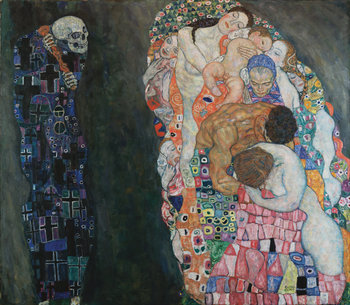
Pure Altruism
An act that is purely motivated by concern for others. For example, a child who wants to participate in some way to save an endangered species out of pure concern and empathy.Self-Sacrifice
Altruism that causes a loss or risk to yourself. For example, a bystander who rescues a drowning person at a beach at significant risk to themselves.Selflessness
A state of being unconcerned with your own needs because you are totally devoted to an altruistic cause.Like any man, I would like to live a long life. Longevity has its place. But I'm not concerned about that now. I just want to do God's will. And He's allowed me to go up to the mountain. And I've looked over. And I've seen the promised land. I may not get there with you. But I want you to know tonight, that we, as a people will get to the promised land.
― Martin Luther King Jr., Speech delivered at Bishop Charles Mason Temple in Memphis, Tennessee on April 3rd, 1968 on the eve of his assassination on April 4th, 1968
Duty
Generally speaking, performing your duty in a role isn't viewed as altruism. For example, a firefighter who saves people from a burning building is technically just doing their duty. However, it is possible that they got into the profession for altruistic reasons from the start such that altruism may be present in duty.Morals
Morals are principles of right and wrong. These aren't necessarily altruistic as morals are often adopted as a means of integrating with a community or improving oneself. For example, the moral that it is wrong to lie can be viewed as improving oneself as opposed to doing good. This being said, some morals are altruistic in nature such as a moral that you should help those in need.Mixed Altruism
Doing something that is partially motivated by altruism and partially motivated by self-interest. For example, a person who wants to work at a pet shelter to save abandoned animals but who also wants to get paid for this work.Weak Altruism
A desire to do something good but not to the point of self-sacrifice. For example, a wealthy person who is willing to donate money to a cause but not their time.Inactive Altruism
In some cases, altruism is demonstrated with inaction. For example, a person who stops traveling out of concern for the environmental impact of flights.Virtue Signalling
Virtue signalling is doing something for others out of a desire for publicity, social status and recognition. This is often not altruistic. However, it is possibly mixed altruism where there is genuine motivation to do good.Humble Altruism
Humility is a virtue whereby your are unconcerned with promoting yourself. People who are humble about their altruism are more clearly altruistic then those who promote themselves with their good deeds as their motivation is unclear, perhaps even to themselves.Authoritarian Personality
An authoritarian personality is a person who uses authority, rules or morals to enjoy a sense of power over others. For example, shaming others about their moral shortcomings. Such an individual generally has no altruistic motivation but may seek to generate this appearance by strongly promoting morals.Paternalism
Paternalism is when an authority acts with altruistic motives. Altruism is defined by the motivation of the actor and says nothing about the opinion of the beneficiary. As such, paternalistic altruism can include rules that are viewed as oppressive by the beneficiary. For example, a city council that bans a popular leisure activity because they feel it is too dangerous out of genuine concern for participants. This would reduce freedom and is essentially patronizing because it assumes participants can't make their own responsible choices that might include calculated risks.Pathological Altruism
Pathological altruism is a broad term for misguided altruism that causes more harm than good based on a misguided sense of superiority whereby you believe you know what others need more than they know themselves. Historically, it is common for people who do terrible things to have convinced themselves that they have purely altruistic motives. For example, a mining executive who has convinced themselves that low pay and dangerous working conditions are good for workers as it builds character.Notes
Paternalism and pathological altruism can overlap. For example, paternalistic arguments were commonly used to justify Slavery in the United States in the years running up to the Civil War.Paternalism is not always unpopular or oppressive. For example, a policy that provides education for free to raise the quality of life and economic prospects of a nation could be described as paternalistic.| Overview: Altruism | ||
Type | ||
Definition | The motivation to do good things for others. | |
Related Concepts | ||





























